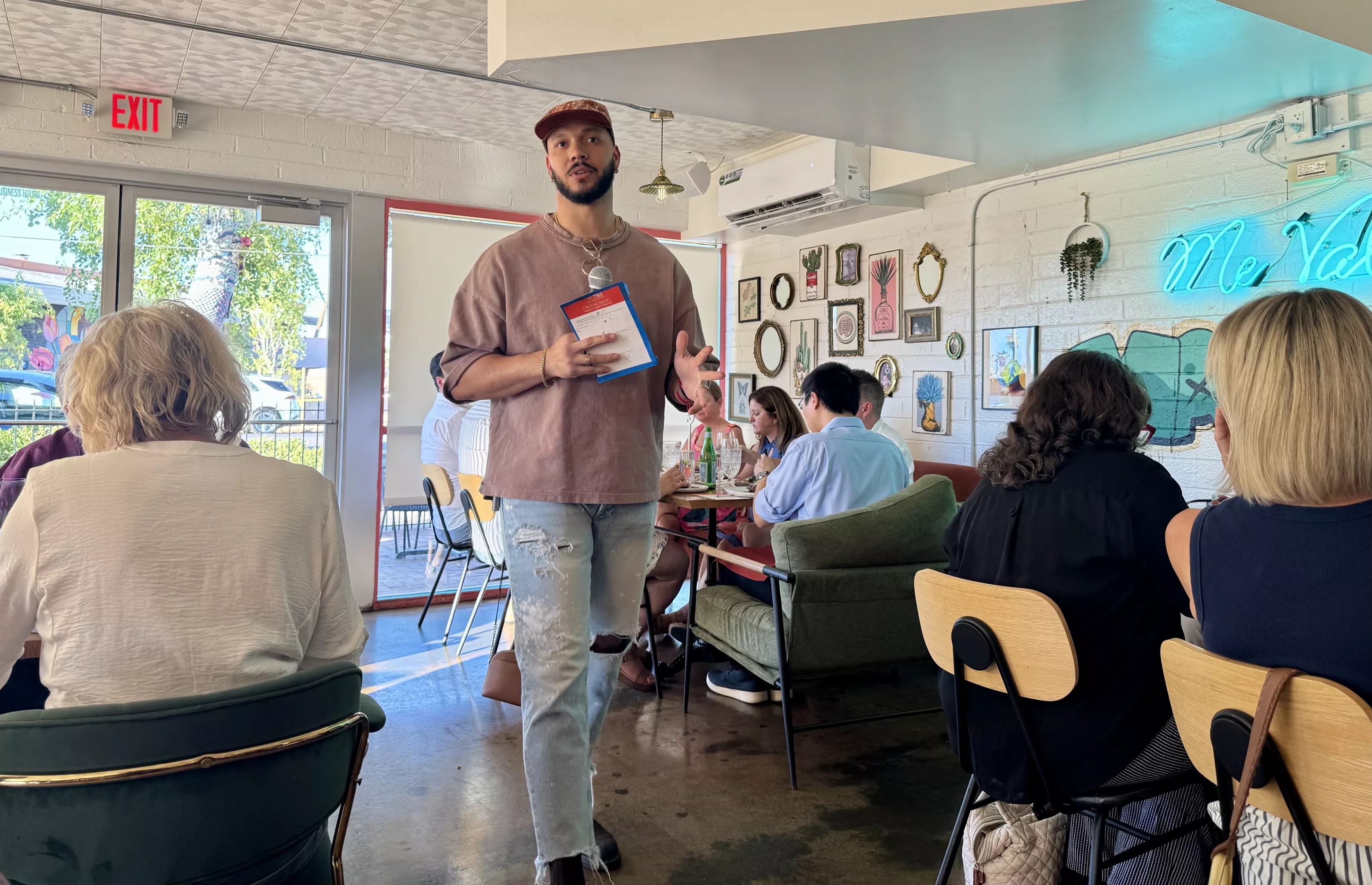
Sara Crocker

Audio By Carbonatix
Downtown Phoenix restaurant Chilte is typically closed at the start of the week. But on a recent Monday night, the restaurant’s dining room was abuzz.
The modern Mexican restaurant inside Grand Avenue’s Egyptian Motor Hotel hasn’t changed its hours. Instead, every seat was filled for Tasting Collective‘s inaugural Arizona event.
The membership-based dining club hosts private multi-course meals at restaurants in cities around the United States that are crafting “boundary-pushing cuisine,” says founder Nat Gelb. The experience connects food nerds with each other and the chefs who run these acclaimed local spots. Gelb started the members-only group in New York nearly a decade ago, “craving this sort of experience where I could get to hear from chefs.”
With the addition of Phoenix, Tasting Collective now hosts these distinctive dinners in 19 cities nationwide, including Boston, Chicago, Denver, San Francisco and Seattle.
“Phoenix has been on our radar for quite a while now,” Gelb says, noting the city’s “exciting” food scene. “It’s the national attention that the city’s been getting more and more.”
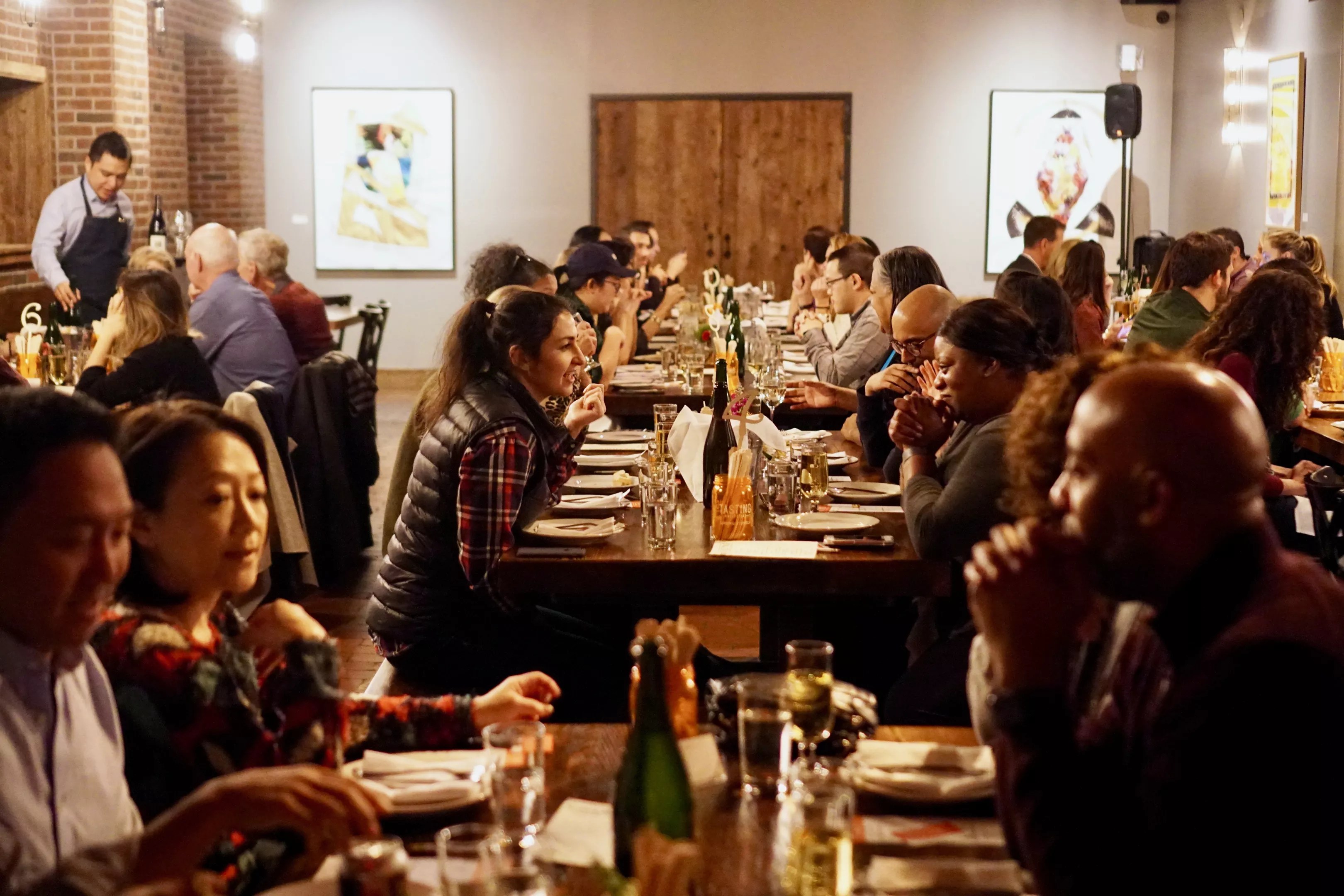
Tasting Collective has members-only dining clubs in 19 U.S. cities.
Tasting Collective
How Tasting Collective works
In each locale, Tasting Collective curates monthly “chef-led” dinners, generally on Sunday through Wednesday nights when many eateries are closed or slow. The meal is five courses and runs just under two hours. A restaurant will generally offer two seatings per night.
Those interested in joining Tasting Collective can request an invitation online. The group will follow up with an invitation in two days. Memberships run $165 for the year, although the first 500 members in a city can get in for $99. Members can bring up to three guests with them to each event.
Attendees also pay for the meal ($75 for members; $95 for non-member guests), as well as any drinks, tax and gratuity. It’s a price point that Gelb admits isn’t cheap, but is often below typical tasting menu prices.
Tasting Collective earns the annual fee, while the ticket cost goes directly to the restaurant, Gelb says.
“I’m not going to try to make money off of restaurants,” he says. “There’s not enough money to go around as is.”
The founder says these dinners are a win-win, providing restaurants “a good night for their slowest night,” while introducing new customers to the restaurant.
The format works, he adds, because the collective and the restaurants have the same goal, “which is everybody has an amazing experience, leaves and tells everybody they know about the restaurant and us.”
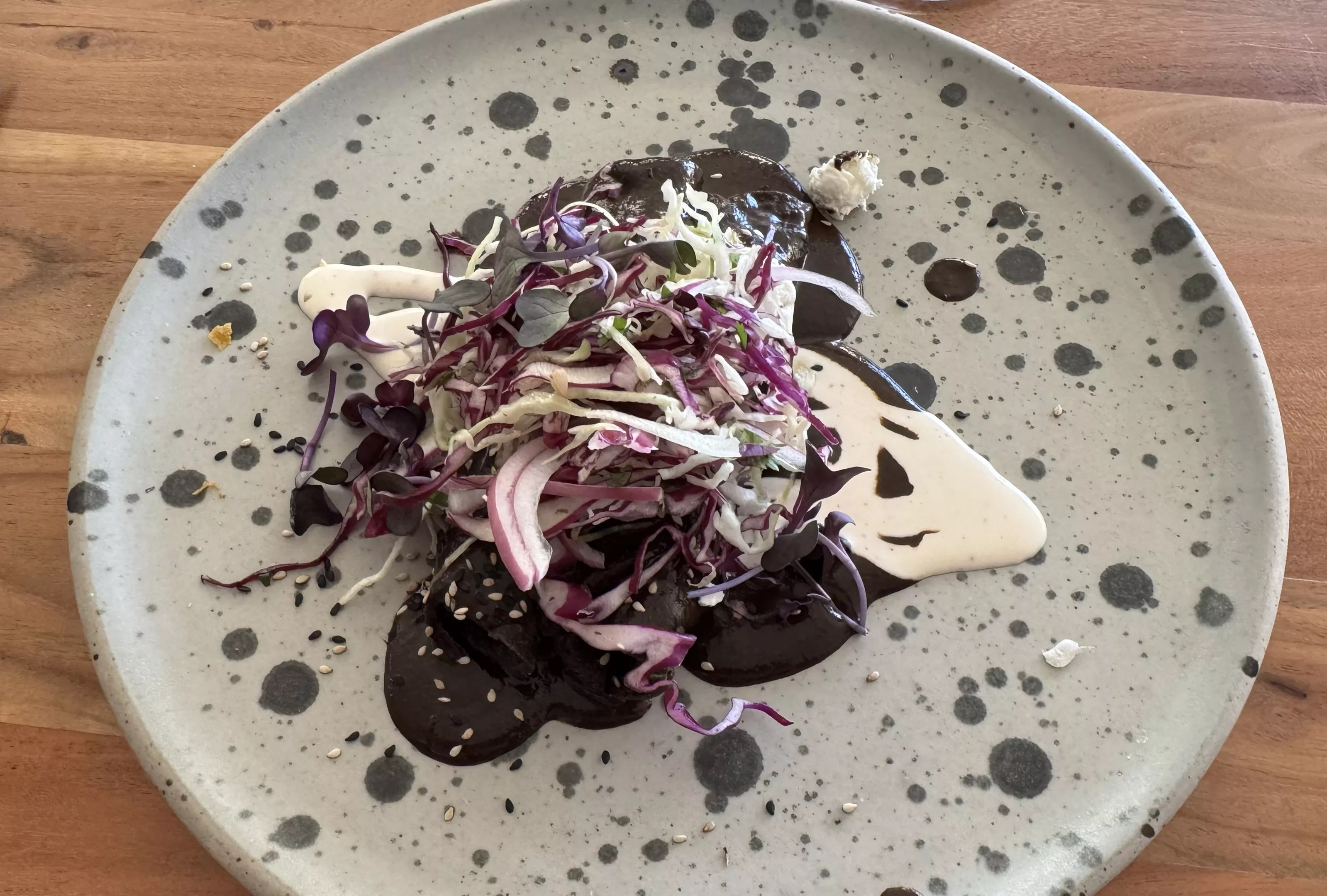
Diners are encouraged to provide feedback on dishes they eat, such as Chilte’s mole flauta.
Sara Crocker
Connections, critiques and chicatanas
At the Chilte event, we are seated at a table of eight with three other couples. Though there are conversation cards on the table to break the ice, the group quickly finds common ground based on what drew us all there – a love of good food.
“One of the things I think I’m most proud of in our community is our members are just all over the map in terms of age and ethnicity. There is no one type,” Gelb says. “You might sit down next to, you know, somebody in their 70s who you just never would cross paths with in your typical day-to-day life.”
As we trade stories about favorite spots around town, the first course drops – Chilte’s Chicatana Ceasar Salad. The named ingredient was a mystery to some diners, who ponder over what it is and how it’s used in the dressing.
For each event, the chefs are encouraged to build a menu that highlights some of the restaurant’s standout dishes and to create unique or special items. At these dinners, chefs can accommodate most dietary preferences, except vegan, Gelb notes.
With the ring of a bell, the Tasting Collective team welcomes the group and introduces Chilte chef Lawrence “LT” Smith. The athlete-turned-chef strides around the restaurant, pleased to learn that about half the group has visited before. He shares Chilte’s evolution from a pop-up to food truck to acclaimed brick-and-mortar restaurant while diners dive into the salad dusted with cheese, a salty chicharron crumble and delicate edible flowers.
Hearing from chefs like Smith is something that sets Tasting Collective events apart from a typical restaurant experience, Gelb notes.
“They get to hear (the chef’s) story and most importantly, feel that passion that they all have for their craft,” Gelb says.
As the courses flow, diners coo over some dishes and critique others, making notes and awarding scores from one to five. Those comment cards go to the chef at the end of the meal.
“It’s a way to get feedback (in) a constructive, private way that doesn’t live online forever and become something that they hate, like Yelp,” Gelb says. “It’s feedback from diners who really care about the food.”
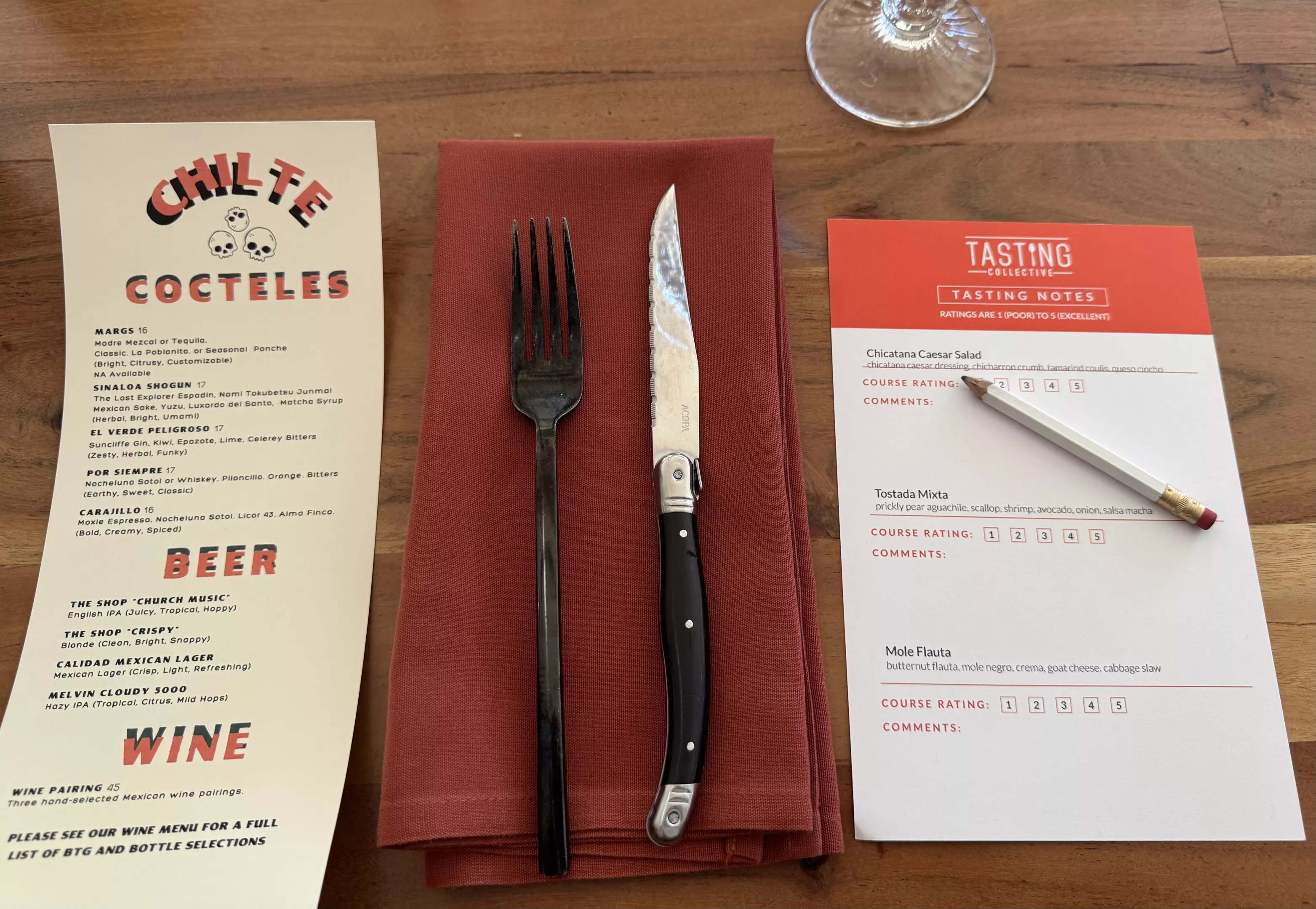
Comment cards are placed at diners’ seats. Their feedback goes directly to the restaurant.
Sara Crocker
One of our tablemates quips that he’s trying to reserve his top score. When the mole flauta arrives during the third course, he concedes this is the moment.
Smith tells the room he’s held onto a cache of butternut squash for these flautas, which are ensconced in a rich mole negro and crema.
Smith pops into the dining room three times between plating dishes. Over dessert – a play on tiramisu made with espresso-soaked banderilla, a brown butter plantain custard and a summery strawberry and jamaica compote – Smith takes questions submitted by diners during the meal.
Just what is a chicatana? A flying ant that Smith uses in the Caesar dressing for a hint of umami. What’s been challenging about running a restaurant? Growing a team and stepping into a leadership role, he explains.
As the meal ends, the Tasting Collective team announces the next dinner will be hosted at Lom Wong on July 16 and 17. There are audible gasps of excitement and delight from the crowd. The dinner club’s Phoenix launch auspiciously coincides with the James Beard Awards. Smith was a semifinalist this year for Emerging Chef, and Lom Wong’s chef and co-owner Yotaka “Sunny” Martin bagged the medal for Best Chef – Southwest.
The tickets for the dinners at the Thai restaurant will drop this week. Members get notified via email and are the only people who can purchase tickets to these dinners. Future events may be hosted at restaurants in Scottsdale or other Valley cities, Gelb says, and the team takes members’ location into consideration when choosing spots.
“A lot of members, they love the curation component of what we do,” Gelb says. That leads to an exploration of places outside a diner’s normal bubble, “to try this restaurant that they would not typically go to in the day-to-day.”
And, with a national footprint, once members eat at two home events, they can partake in events in other cities, too.
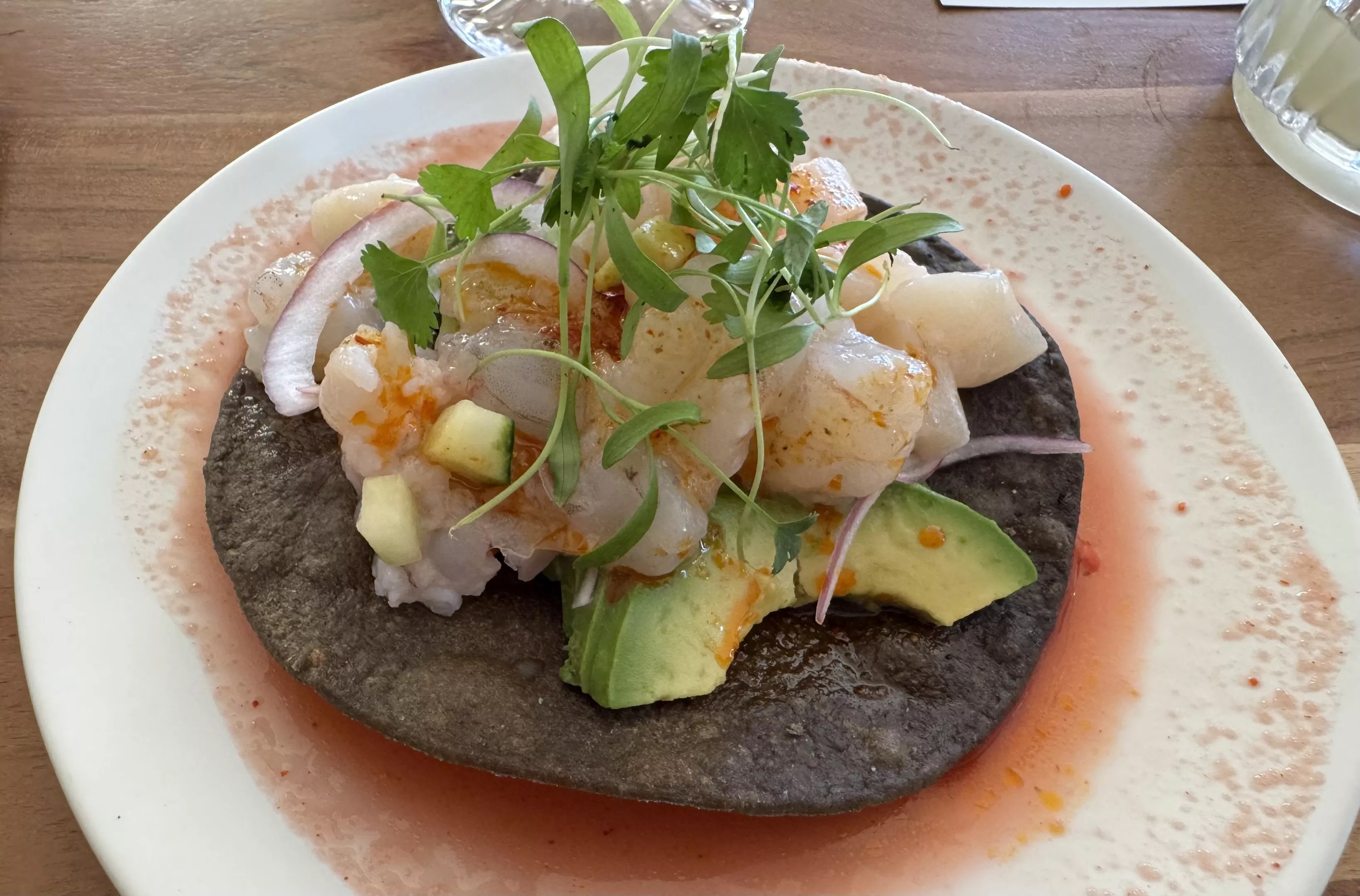
A shrimp and scallop tostada with a prickly pear aguachile.
Sara Crocker
While the meals focus on the food, they also have a social element. When diners begin to depart at Chilte, Smith’s team is readying for a second seating. Some diners exchange contact information. Those new friendships, while not guaranteed, are an added benefit to the experience, Gelb says.
“It’s a breath of fresh air, putting the phones down and just connecting with other human beings for a little bit and having conversations,” he says.